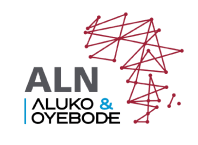December 2017
In a bid to enforce the use of a common identification system in Nigeria, the National Identity Management Commission (“NIMC”) recently released the Mandatory Use of the National Identification Number Regulations 2017 (the “NIMC Regulations”) made on 26th October 2017. This is pursuant to the powers conferred on NIMC by the National Identity Management Commission Act 2007 (the “NIMC Act”)
Essentially, the NIMC Regulations expands the scope of transactions set out in Section 2 of the NIMC Act, for which the National Identification Number (“NIN”) would be mandatorily required. The notable additional transactions includes the purchase, registration as well as change of ownership of aircrafts, ships, boats, motor vehicles and motor cycles; registration and use of aviation services by airline operators and customers; registration and membership of professional bodies; purchase of travel tickets or tokens for air, rail, road and water transportation; boarding of aircrafts, trains, commercial vehicles, ships and boats; acquisition, sale or transfer or transmission of shares or equities and other financial instruments; filing and registration of criminal and civil actions in courts or other arbitration processes; and registration of companies, sole-proprietorships, partnerships and non-profit organizations and other post-incorporated documentation with the Corporate Affairs Commission.
Other notable transactions included in the NIMC Regulations are: import and export of products, commodities or goods; issuance of birth certificate and driver’s license; tax identification; registration of voters; purchase and sale of foreign currency in banks and bureau de change; registration and licensing of security companies; executing any contract or business agreement; all transactions involving the acquisition, use or transfer of parcel of land or landed properties; and application for or biding for any Local, State or Federal Government jobs or contracts or accessing any benefits from any intervention programme whether via a created portal or manual application. Please see a comprehensive list of applicable transactions here.
The Regulation stipulates that government agencies offering the services listed above are obligated to request any person transacting with them to produce his NIN and verify and authenticate the person or NIN so provided in the National Identity Database.
Further, the Regulation bestows wide powers on the NIMC in order to monitor compliance with NIN requirement. In exercising its powers of enforcement and compliance with the requirements of the NIMC Regulations, Mandatory Use of the NIN Regulations 2015 and the Nigerian Biometrics Standards Regulations 2017, NIMC has the power to demand for evidence of compliance from persons, public or private institutions and organizations or may institute criminal proceedings against a non-compliant person or entity through the office of the Honorable Attorney-General of the Federation or by instituting civil actions against the defaulting person or entity.
NIMC may obtain a Federal High Court warrant or order to seize and detain any book or record used for creation of identity database which does not conform with the Act, the Regulation and other relevant regulations made pursuant to the Act or obtain an order of the court to seal-off the premises or business place or shut down identity data base or stop further services by the defaulting person or entity or upon giving written notice of not less than 24 hours have the right to conduct an audit on the state of affairs and operations of transactions or services carried out by applicable persons and entities or demand payment of a penalty as provided in the Act or request the assistance of any law enforcement agency to enforce compliance with any directives issued under these NIMC Regulations. The NIMC Regulations became effective from 26th October 2017.
See more details in the Regulation here.
